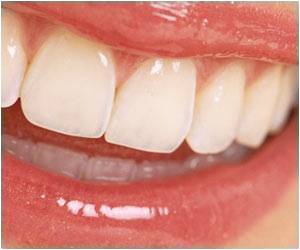
‘If you are preparing to have an implant, it might be a good idea to start taking beta blockers for a while. And to stop taking heartburn pills.’
Tweet it Now
A body of research from McGill led-teams indicates that in order to
raise the odds that dental implants will attach properly, there are
clear benefits to taking certain common medications and avoiding others.Bone cell growth, healing and death
Prof. Faleh Tamimi, who teaches in the McGill Faculty of Dentistry, and is the senior author on a number of papers published on the subject in recent weeks, said, "Because some medications affect bone metabolism and the way that bone cells heal and multiply or die, they can have an important effect on the success of implants."
The McGill research team reviewed data about the integration of dental implants gathered from over 700 patients who were operated on at the East Coast Oral Surgery Clinic in Moncton, New Brunswick between 2007-2015. They then confirmed the results they saw in human patients through studies in rats.
Implications for hip and knee replacements
Advertisement
Drugs that aid integration of implants - Beta blockers
Advertisement
- September 2013 at the East Coast Oral Surgery in Moncton, New Brunswick
- 327 implants were in 142 people who took beta blockers for hypertension
- 1172 implants were in 586 people who didn't take beta blockers
- Failure rates of implants for people using beta blockers was 0.6%
- Failure rates of implants in people who don't take beta blockers was 4.1%
- More than 640 million patients around the world take beta blockers to control hypertension.
"We carried out this study because we knew that beta blockers have been reported to increase bone formation," says Prof. Tamimi from McGill's Faculty of Dentistry. "So we thought it was possible that they would also decrease the risk of failure of dental implants. However we didn't expect that there would be such a clear difference in the failure rates for implants between users and non-users of beta blockers. Randomized clinical trials will need to be carried out as well as other studies of large numbers of patients to investigate this phenomenon in more depth."
Drugs that impede integration of dental implants - Heartburn treatment
- Conclusions are based on 1773 dental implants in 799 patients between January 2007 - September 2015 at the East Coast Oral Surgery in Moncton, New Brunswick
- 133 implants were in 58 people who took heartburn medication
- 1640 implants were in 741 people who don't take heartburn medication
- Failure rates of implants for people using heartburn medication were 6.8%
- Failure rates of implants for people not taking heartburn medication were 3.2%
- More than 20 million Americans, about one in 14 people, take heartburn medication
- Heartburn medication is rapidly becoming the third most prescribed pharmaceutical product worldwide, especially for elderly people, who take it either on an occasional or long-term basis.
"Scientists already knew that drugs for heartburn reduce calcium absorption in bones and generally increase the risk of bone fractures," says Faleh Tamimi, of McGill's Faculty of Dentistry. "That is why we wanted to look at how it affects the integration of implants and bone healing after this type of surgery. But we didn't expect to find that the negative effects of these type of drugs would be as great as they are. Further work will need to be done to find the appropriate dosages and time periods that people should take or avoid these medications."
Source-Eurekalert












